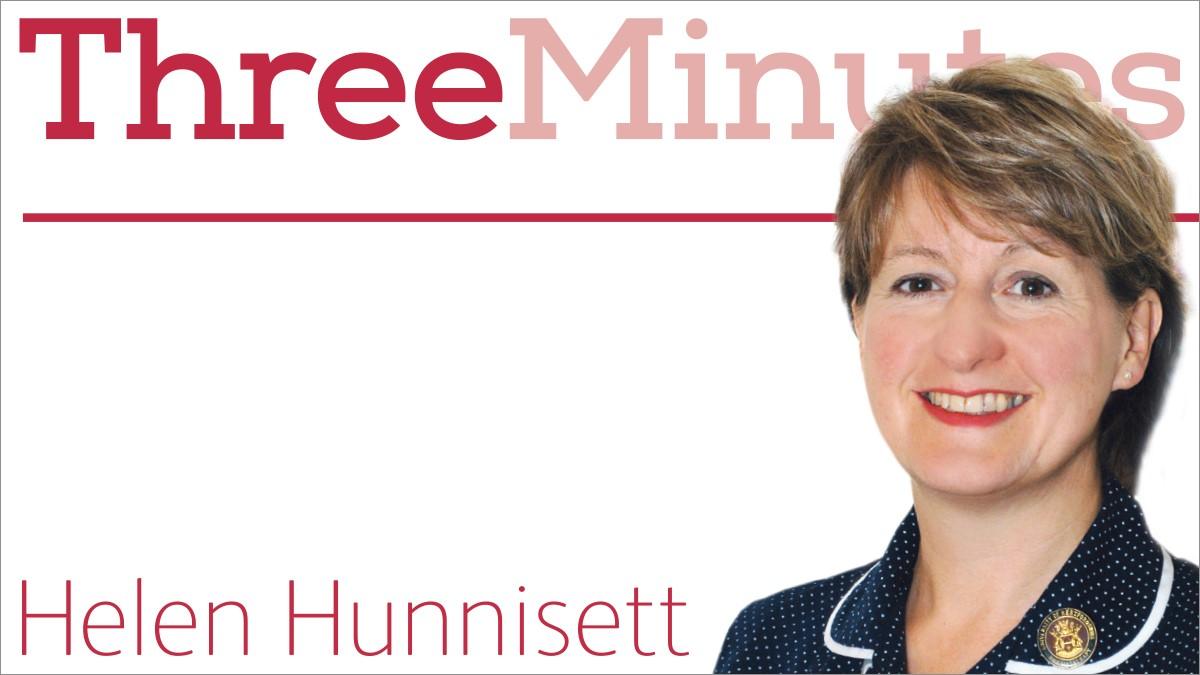Helen Hunnisett says personalised advisory care plans can offer an alternative to hospital admission

Helen Hunnisett is a frailty practitioner with East Sussex Healthcare Trust. She studied physiotherapy at the University of Hertfordshire, graduating in 1996. She lives in Bexhill-on-Sea and previously worked in a senior role with older people at Bexhill Hospital.
Tell us about your role?
As a frailty practitioner with East Sussex NHS Healthcare Trust’s community team, I see patients ranging from those who are moderately frail, to those approaching the end of their lives.
I undertake comprehensive geriatric assessments of people who have been in hospital recently, or had multiple unplanned hospital admissions.
I look at all aspects of health including physical and mental health, cognitive screening, polypharmacy reviews, home environment assessments and future care planning.
The role is to identify reversible causes of frailty, prevent unnecessary hospital admissions and ensure frail, older people receive the care they want, in the place they want.
For this role, I have had to undertake a non-medical prescribing course, along with frailty-specific training from our geriatrician and nurse consultant.
What is a typical day for you?
It will include carrying out assessments, making referrals, assisting patients who have been admitted to hospital, or discussing end-of-life care decisions with patients and relatives.
Why did you become a frailty practitioner?
Working with older people has always been my professional interest and providing person-centred care is paramount to me.
This role requires me to work as a practitioner, drawing on my physiotherapy knowledge, but also to adopt new skills in nursing, medicine management and advanced assessment skills.
Initially this was extremely challenging. I felt like I was always explaining that I wasn’t a nurse ‘so please don’t ask me about … ’. In essence, I had to leave my ‘physio head’ behind for a year and learn new skills. Only now can I interchange and blend the right skills to achieve the best outcome for each patient.
How important is your physiotherapy expertise in this role?
I use it to signpost, advise and educate patients and other practitioners. We aim to minimise the number of medications our older patients take. As a therapist, I am able to look at alternatives to the medical model. This could mean the management of benign paroxysmal positional vertigo, low blood pressure or pain, in place of first-line drug therapy.
As an independent non-medical prescriber, I am able to perform advanced assessments and treat reversible causes of falls, such as iron deficient anaemia, or start bisphosphonates to minimise future fractures, or treat infections early and prevent hospital admissions.
What is the most significant innovation you have made?
Without a doubt, it is the introduction of personalised advisory care plans. They detail care for frail elderly people living in care or nursing homes and look at providing care in that setting.
The plans have been greatly welcomed by patients and relatives, because they provide an alternative to hospital and the right decide whether or not to continue life-prolonging treatment.
Initially, I thought these discussions would be challenging. But they are so well received that it’s an honour to be part of a families’ journey as their loved one approaches the end of their life.
What’s next for you?
I am looking forward to the start of the advanced physical assessment course to complete my mandatory training for this role. And because of the success of the team, we’re expanding and starting to work in the acute admission wards to try and identify frail patients and expedite discharges with follow-up in the community.
How do you relax?
Life is extremely busy with work, studying and two children, but in my spare time I enjoy running, baking, dressmaking and gardening.
Number of subscribers: 1




































